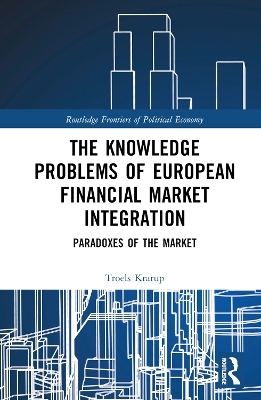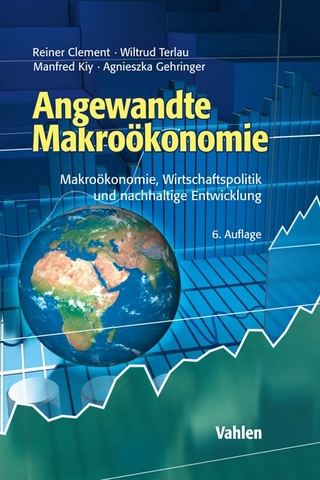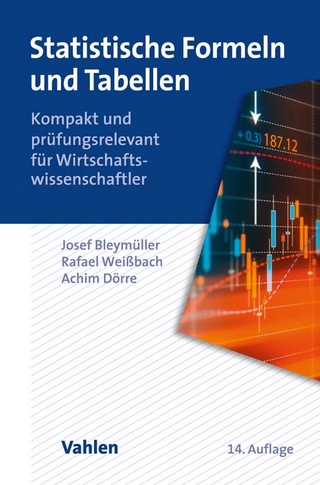
The Knowledge Problems of European Financial Market Integration
Paradoxes of the Market
Seiten
2023
Routledge (Verlag)
978-1-032-21223-4 (ISBN)
Routledge (Verlag)
978-1-032-21223-4 (ISBN)
Drawing on European legal texts, policy documents and interviews with regulators, central bankers and financial professionals, this book is rich in empirical detail which reveals a close-knit set of knowledge problems, or paradoxes, of the market. The book demonstrates how the market is adopted from economic theory into European treaty law.
Since the creation of the euro and a European Central Bank, the European Union has persistently pursued financial market integration throughout periods of economic growth, membership enlargements, financial breakdown, and political crisis. While traditionally analysed in terms of clashing ideological orientations and strategic political interests, this book presents a novel and empirically grounded perspective on the issues around financial market integration by approaching them in terms of the knowledge problems that actors face.
Drawing on European legal texts, policy documents and interviews with regulators, central bankers, and financial market professionals, this book is rich in empirical detail which reveals a close-knit set of knowledge problems, or paradoxes, of ‘the market’. These paradoxes are irreducible to a particular political ideology or national interests because they are rooted in the conceptual structure of the European treaties. Moreover, while these knowledge problems present themselves as uncertainties, tensions, and conflicts in practice, they also echo persistent conceptual and theoretical controversies in the field of economics. Indeed, this book demonstrates how ‘the market’ is adopted from economic theory into European treaty law, resulting in central bankers and regulators struggling with knowledge problems and conflicts paralleling classic debates in the academic discipline.
This book will be of significant interest to political economists working on European economic integration and money and finance as well as readers of heterodox economics, economic sociology, and political and social theory more broadly.
Since the creation of the euro and a European Central Bank, the European Union has persistently pursued financial market integration throughout periods of economic growth, membership enlargements, financial breakdown, and political crisis. While traditionally analysed in terms of clashing ideological orientations and strategic political interests, this book presents a novel and empirically grounded perspective on the issues around financial market integration by approaching them in terms of the knowledge problems that actors face.
Drawing on European legal texts, policy documents and interviews with regulators, central bankers, and financial market professionals, this book is rich in empirical detail which reveals a close-knit set of knowledge problems, or paradoxes, of ‘the market’. These paradoxes are irreducible to a particular political ideology or national interests because they are rooted in the conceptual structure of the European treaties. Moreover, while these knowledge problems present themselves as uncertainties, tensions, and conflicts in practice, they also echo persistent conceptual and theoretical controversies in the field of economics. Indeed, this book demonstrates how ‘the market’ is adopted from economic theory into European treaty law, resulting in central bankers and regulators struggling with knowledge problems and conflicts paralleling classic debates in the academic discipline.
This book will be of significant interest to political economists working on European economic integration and money and finance as well as readers of heterodox economics, economic sociology, and political and social theory more broadly.
Troels Krarup, Associate Professor, Aalborg University, Denmark.
Chapter 1. Introduction: A Problem Called ‘the Market’ Chapter 2. The ‘Archaeology’ of Paradoxes: Methodology and Materials Chapter 3. The Constitutional Problem of Competition in the EU Chapter 4. ‘Infrastructure’ between Competition and Centralisation Chapter 5. Money and the ’Level Playing Field’: Economic Theory meets Market Integration Chapter 6. The Liquidity Problem of Contemporary Finance Chapter 7. Conclusion
| Erscheinungsdatum | 22.08.2023 |
|---|---|
| Reihe/Serie | Routledge Frontiers of Political Economy |
| Zusatzinfo | 4 Tables, black and white; 4 Line drawings, black and white; 4 Illustrations, black and white |
| Verlagsort | London |
| Sprache | englisch |
| Maße | 156 x 234 mm |
| Gewicht | 453 g |
| Themenwelt | Sozialwissenschaften ► Politik / Verwaltung |
| Wirtschaft ► Volkswirtschaftslehre ► Makroökonomie | |
| Wirtschaft ► Volkswirtschaftslehre ► Wirtschaftspolitik | |
| ISBN-10 | 1-032-21223-3 / 1032212233 |
| ISBN-13 | 978-1-032-21223-4 / 9781032212234 |
| Zustand | Neuware |
| Informationen gemäß Produktsicherheitsverordnung (GPSR) | |
| Haben Sie eine Frage zum Produkt? |
Mehr entdecken
aus dem Bereich
aus dem Bereich
Makroökonomie, Wirtschaftspolitik und nachhaltige Entwicklung
Buch | Hardcover (2022)
Vahlen (Verlag)
49,80 €
Volkswirtschaftslehre für eine sich ändernde Welt
Buch | Hardcover (2024)
De Gruyter Oldenbourg (Verlag)
44,95 €
Kompakt und prüfungsrelevant für Wirtschaftswissenschaftler
Buch | Softcover (2021)
Vahlen, Franz (Verlag)
11,90 €


